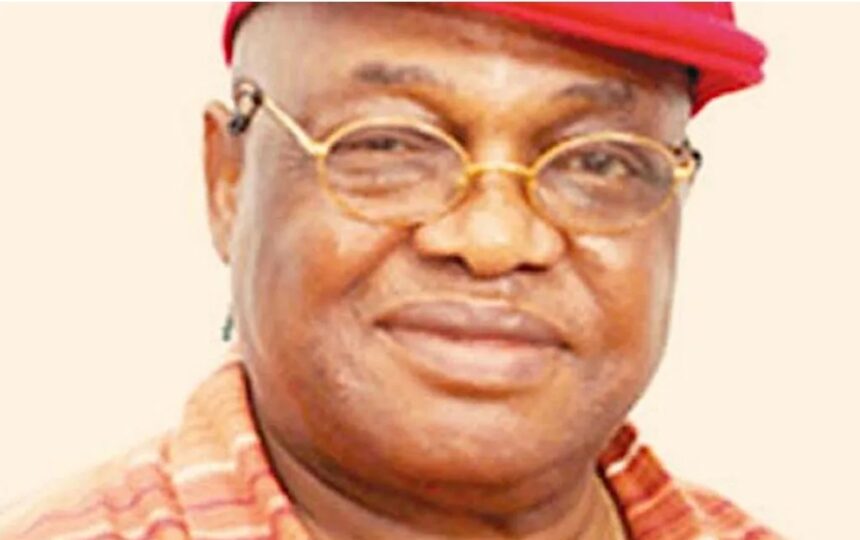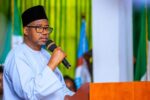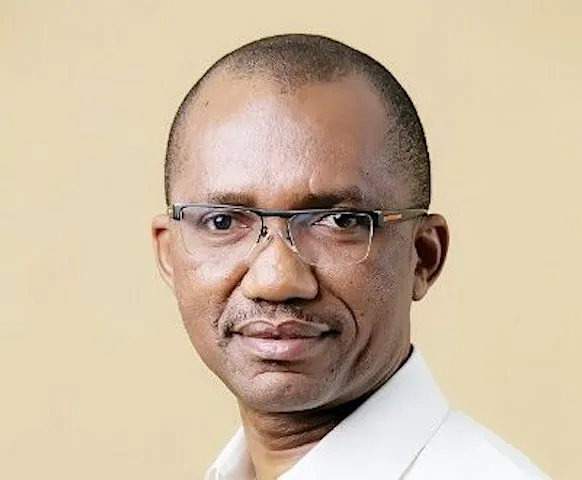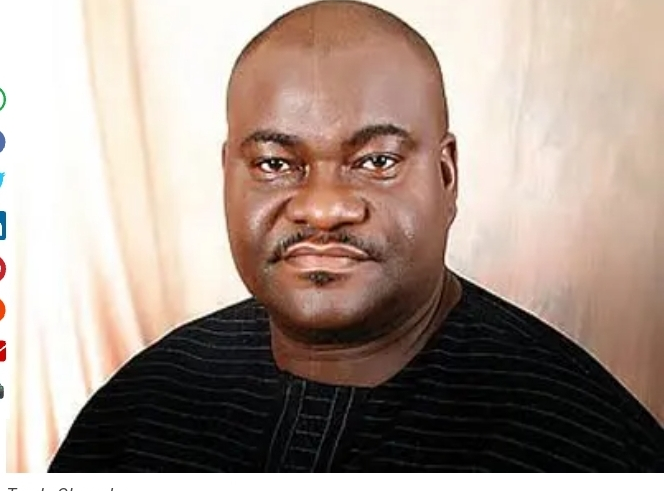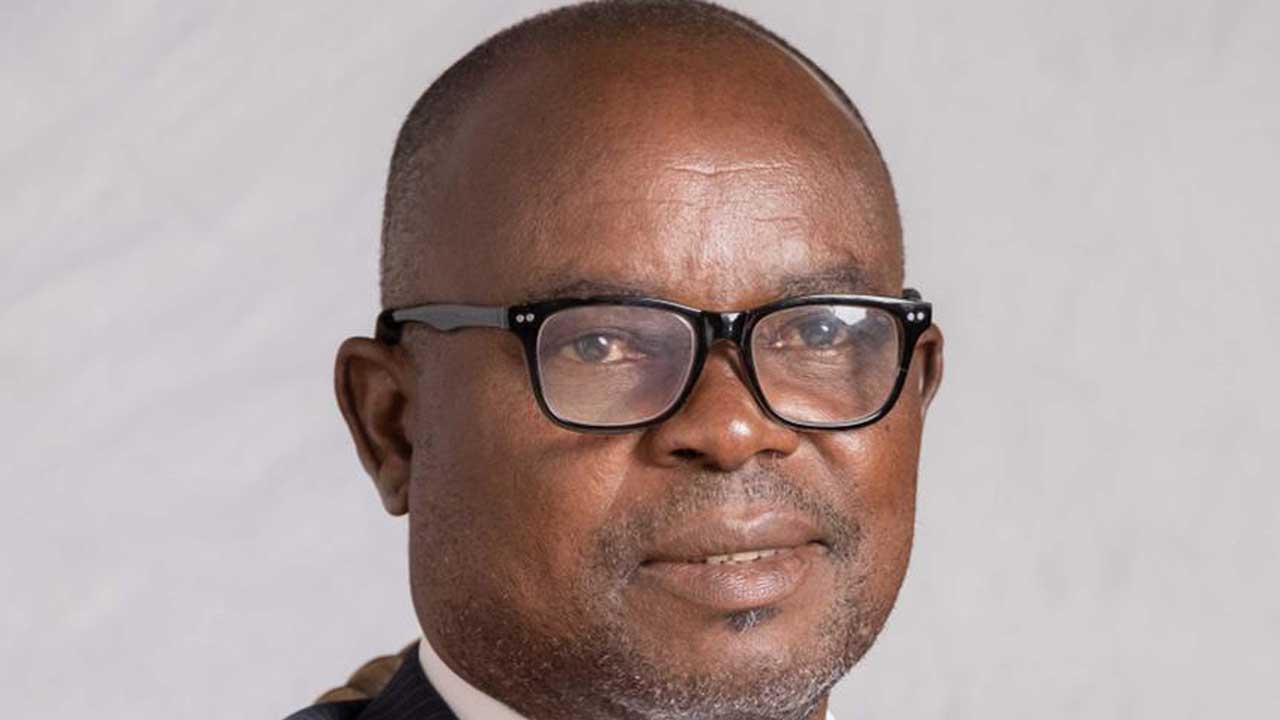What is new in the life of Dr. Patrick Dele Cole in the last five years when he turned 80 that makes him deserving of public attention and tribute as he turns 85 years this month on this planet earth? He was 85 on 4 August.
Drums were not rolled out. There was only a modest gathering of friends and some former staffers of The Guardian joining the family in felicitation and thankfulness for the blessing and joy of the day amidst sharing of comestibles and clinking of glasses.
In the photograph with The Guardian former staffers, he evinced warmth and radiance which was reassuring that PD Cole is back on his feet. Like the journey of practically all men, it has been a life of battle and challenges, what one may call friction with materiality which is necessary for polish and maturity of the inner man.
Chief Obafemi Awolowo, in his allocutus in 1963 quoting from the novel of Peter, the hero of Hugh Walpole titled, ‘Fortitude’, had said, ’It isn’t life that matters but the courage you bring into it’. Dr. Cole has brought demonstratable courage into his life after the exit of his wife from earthly life. Their close union was a combination of power and strength, with PD as a public intellectual, an administrator and businessman supplying the strength peculiar to the men and Mina his wife bringing to the equation the power inherent in woman as the link between man and the higher realms.
Females are generally endowed with abundance of spiritual power than men because of something of an essence that makes for easier sensing, appreciation and unconditional submission to the Will of the Most High, the Almighty Father. The essence makes them easily receptive to the prompting of the spiritual.
Mina Dugoabere Cole passed away in England in October, 2021, after a protracted illness. When she eventually lost the battle, Dr. Cole was shaken. This was written all over him. A definitive parting of close relations and friends comes with its own pains, how much more of a dutiful spouse who also takes her spiritual life seriously. A pastor at the Redeemed Christian Church, so strong was she in her belief that she refused her husband’s pressure to have her baby in a standard hospital, after all, he could quite readily afford the bill.
She was firm in having the baby in the Redeemed Christian Church clinic where the expectant mother in labour was helped with only prayers! She was always engaged in the church activities with Mrs. Graham-Douglas, wife of a senior government functionary at a time.
The place of a woman in the home where the union is of the right kind is incomparable. The woman is seen and felt as constituting the power centre and pillar of the house. For that reason, many a man prefers passing away before their wives.
Those who had watched the union were, therefore, apprehensive about Dr, Cole’s continuing state of mind. The scripture says: ‘Whoso findeth a wife findeth a good thing, and obtaineth favour of the Lord’. (Proverbs 18:22) Elsewhere, it says: “An excellent wife is the crown of her husband…’ (Proverbs 31: 10-31).
How was Dr. Cole going to cope? Seeing him glowing on the occasion of his 85th birthday associates and friends couldn’t but felicitate, with hearts full of joy. The one the world calls PD Cole is back on his feet, dropping the heavy garment of sorrow and, brandishing his shining armour of triumph over fear.
Who is Dr. Patrick Dele Cole? The question has, therefore, necessitated going into the archives to exhume the tribute this column paid to him on the attainment of the 80 years milestone. It read as follows:
The one and only one we call PD Cole—scholar, public servant, newspaper administrator, diplomat, discussant, author, politician and businessman is 80 (today 85). He came visibly into public consciousness and reckoning in 1975 when he was appointed a non-executive director of the Daily Times. Upon his return to the country after his education at the University of Otago, New Zealand; and at the famous Cambridge University in the United Kingdom where he took his doctorate degree and he was a fellow for three years, and simultaneously had a stint as well at the University of Pennsylvania in the United States, he went into the civil service.
He was in the Cabinet Office and a star member of Obasanjo Think tank. It was when he was at the Cabinet Office, with his star beaming rays, that he was picked and appointed a director of the Daily Times to represent the government interest on the Board.
At this time, the Administration of Murtala Mohammed had in a fit of rampaging vengefulness compulsorily acquired controlling shares of 60 per cent in the Daily Times, a hugely successful newspaper empire, the biggest in Africa South of the Sahara—both editorially and commercially. The paper had 15 flourishing publications and subsidiaries such as Times Press and Niger Pack. It got involved in real estate business, building what at the time was called Naira House. The unfortunate acquisition was made through government-owned NICON Insurance. In a reckless act of misguided patriotism, the Administration also took over the New Nigerian, an editorially vibrant, fearless, compelling and well-written newspaper, and ruined it.
The Daily Times had mounted a vigorous campaign that Mohammed should be thrown out of Gowon Administration and he got removed. It was part of the running battle for a corruption free Nigeria the Daily Times had with the Gowon administration itself such that it closed down the newspaper on 5 November, 1969. On the 12th of the same month, it had Babatunde Jose the legendary newspaper wizard who was Chairman/Managing Director locked up; also caged in police cell were his deputy, Leban Namme; Henry Odukomaiya, editor of the Daily Times and Segun Osoba, editor of the high-flying Lagos Weekend. They were all humiliated. It was the government itself that had called on the Press to join hands with it in the war against corruption.
The acquisition of the shares by the Federal Military Government led to the premature exit of Alhaji Babatunde Jose, Chairman/Managing Director. It was in the wake of the ensuing crisis in the company that Dr. Patrick Dele Cole came into the saddle.
His first assignment was to restore the much-needed peace and harmony in the company. This did not take long as he was discovered almost too soon to be a fantastic negotiator. For him the credo was the triumph of reason. He disarmed everybody who was battle ready should there be a misstep. He kept the structure he met and revitalized this layer, that layer of activities where necessary in the company.
Dr. Cole was the first newspaper administrator in Nigeria to set up an editorial board after what obtained in the United States. The board was saddled with worrying itself about formulating editorial opinions for the newspaper from day to day.
In most of Commonwealth countries, Nigeria included, what had hitherto obtained was the British model in which the editor chaired a meeting of his features arm, of his features writers to bang out editorials. The features editor was the chief leader writer. Two names readily come to mind who were features editor and chief leader writers: Novelist Nkem Nwankwo (who had added to his title as features editor, deputy editor, editorial) and Dr. Doyin Abiola (Nee Aboaba, features editor).
Of course, there were three or so more in the team, Olu Idowu we called ‘Sonponna’ because of the thunderous tone of his hard-hitting editorials and Dr. Ezimora, Levi Okoroafor (later a Senator). Olu Idowu was more known as Olu Akaraogun which he used to sign his column. Akaraogun he appropriately adopted from The Brave Hunter in The Forest of Demons ( Ogboju-Ode Ninu Igbo Irunmole by D.O.Fagunwa) translated into English by Nobel Laureate, Professor Wole Soyinka; and separately by Dr. Edmund Olu Mabo.
The tradition of leader-writing by the features department changed with the coming of Dr. Cole. He brought Dr. Stanley Macebuh, an exceedingly bright and debonair liberal thinker as chairman of the editorial board. With the new arrangement, the chairman of the editorial board became the chief leader writer. Macebuh was joined by Doyin Abiola, Olu Akaraogun and for a little while Levi Okoroafor. Dele Giwa and Sam Oni soon joined the team both from the United States, although not until a crisis had erupted but had been promptly settled. After Doyin Abiola and Dele Giwa left for The Concord just being put together on the invitation of Henry Odukomaiya, the Managing Director/Editor-in-Chief, Ladbone succeeded Dele Giwa as features editor and member of the editorial board.
The storm arose following a circular Dr. Cole which paid scant regard to the Nigerian newspaper law. The circular precluded editors from making input into the drafted editorial or altering or removing any word once it had been agreed to by the editorial board. In the old tradition, the editor could write his own editorial without discussion with anybody.
The law governing newspaper publishing in Nigeria gave responsibility of the content, editorial or advertisement, to the editor. The editors led by Tunji Oseni of the Sunday Times and Dipo Ajayi who was acting for Tony Momoh, editor of the Daily Times who was on vacation, resisted the circular. In the end with the intervention of Lateef Jakande, (LKJ), the Managing Director/Editor-in-Chief of the Nigerian Tribune and President of the Newspaper Proprietors Association of Nigeria (NPAN), the matter was decided in favour of the editors.
They were to have the last say and must concur to the views of the Editorial Board and to any other item in their paper, clean it up if they wished in accordance with the country’s newspaper law. This did not diminish Dr. Cole’s stature or his authority in any way.
The coming of the two—Cole and Macebuh gave the Daily Times added intellectual prestige. There had been a large gathering of intellectuals in the organization as a result of a deliberate policy enunciated by Alhaji Jose in his human capital development programme with many sent to the university or sent overseas for courses and attachment to newspaper houses.
There was an office specially for this manned by Ted Carey. The Daily Times also had its own school. Sometimes, trainers could come from the Daily Mirror in London. None of these was changed by Dr. Cole. So successful was the introduction of the editorial board at the Daily Times that there is hardly any newspaper in Nigeria today that does not have an editorial board. The credit goes to Dr. Cole.
A humble fellow, Dr. Cole regarded the experience as a learning curve; and fast he did learn, so much so that he was loved by all. In pronouncement and in carriage there was something majestic about him and a note of sincerity. This resonated well with the rank and file. In no time he dispersed the apprehension that the government had planted him there as a mole and to muffle the accustomed freedom and trenchant voice of the Daily Times. Indeed, such was the apprehension that it was believed editorials would from time to time come in from Dodan Barracks, especially given the combustible relationship between the newspaper and the government at the time.
On the contrary Dr. Cole disappointed everybody; he formed a rampart of defence around the Daily Times and its editors. He was acutely conscious of his legacy. The newspaper grew in stature, its tone still stringent. It continued not only an editorial success but a commercial success as well, recording humongous profits. Indeed, as if to reassure the staff, he left Tunji Oseni editor of Sunday Times, and Achike Okafor, his deputy, to run their editorials without recourse to the editorial board, and Tony Momoh could rework the editorial in his paper as he wished.
One Saturday, in the course of the preparation of the next edition of the Sunday Times, a call came to Tunji Oseni from a ranking government functionary. The official said the government had been looking for Dr. Cole but could not link up with him. He was being sought to get him to stop the lead story on Nigeria Airways they heard was in preparation against the following day. Oseni said he was sorry he was not going to pull out the report.
There was a long argument. Oseni put down his foot, and was reported to a higher authority in government, still he was adamant; he was not going to buckle under; he was going to publish his story. And he did.
To everybody’s chagrin and surprise, Dr. Cole emerged and he backed his editors. No one in the organization saw him as a civil servant in a newspaper house any more, but a bulwark to protect the Daily Times, decent and trusted newspaper manager who regarded only the readers of the Daily Times as his only boss. He was at the Senate with Tony Momoh to defend the Daily Times and its editor who had challenged the Senate’s power to summon him in court.
He submitted himself to scrutiny by staff. Ace cartoonist Josy Ajiboye poked fun at him drawing him peeping from his second-floor office window in his accustomed Oxford Street suit, puffing away at his cigar while flood had overtaken the whole premises. He saw the cartoon as a wake-up call for him to do something about deflooding Kakawa. Dr. Cole continued with the human capital development policy of the company he inherited.
Many members of staff were sent overseas for studies and training. A team was also sent to Britain to understudy the workings of web offset machines the company was installing at its new site in Ikeja. It was to his credit that the Daily Times moved to the new site at Agidingbi.
He pushed hard to get the dream the company held dear and nourished realized. Features such as Grapevine, literary reviews, Page 7 by Dele Giwa and Caught-Out by Ladbone were introduced even if all may not have been his ideas—Caught-Out column was Tunji Oseni’s idea for instance, they flourished under his watch, he took personal interest in them. They flourished as a result of the editorial freedom he permitted his editors. The freedom may have been a source of joy and an assurance to the nation of the continuing success of the Daily Times, it was an irritation to the new helmsmen, the Shagari Administration. No sooner the government settled down than it disbanded Dr. Cole’s formidable team.
He was later to lend his weight to the emergence of The Guardian for which Segun Osoba chose the editor and Cole endorsed the recommendation, for example. While stories were being gathered and the company was rehearsing to bring its dream to fruition, the dream enunciated in its slogan: Sooner than later you will read The Guardian, Dr. Cole went through the file to make sure the stories being prepared were in conformity with standard features of a quality newspaper the proprietors envisaged, a newspaper that appeals to reason rather than emotions. He joined in the trip to Europe for the purchase of machines for the paper where the vendors experienced him and he came back with the glittering testimonial as a hard-nosed negotiator.
One of the intellectuals around Obasanjo dating back to his days as a military Head of State and Yar’Adua with Cole held regular meetings with editors at State House, Dr. Cole was later to be appointed Nigeria’s ambassador to Argentina and Brazil. Although he has straddled practically every sphere of human endeavour, from being a university lecturer, to being a politician, businessman, and a diplomat, there is none that has given him exposure and afforded him opportunity to be in his elements than journalism—as a debater, as a writer and as a newspaper administrator. Today, Cole is a by-word in the newspaper industry and the Nigerian society as a whole.
Ladies and gentlemen, let us all rise, fill our glasses; let us give honour to whom honour is due, to a giant— even if virtually, thanks to the technological wonders of these times, and the ubiquitous presence of Mr. AI to bring all parties together, get up and say after me: Hip, Hip, Hurrah!!!

